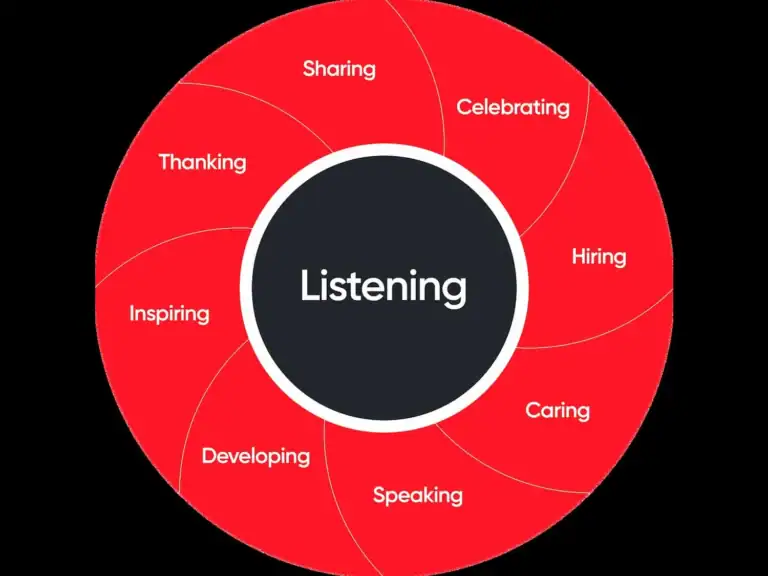5 Successful Leadership Skills for Managers in Organizations


Jana Saab
Leadership skills are as important as technical skills. Strong leaders demonstrate excellent communication, listening, and problem-solving skills.
If you are a leader or aspire to be in this position, such skills are necessary to cultivate an organizational and healthy work environment to help in the success process of your organization.
The Great Place To Work® Trust Index© Survey showed that 90% of the respondents in successful companies believe that their managers are trustworthy and have leadership qualities.
Therefore, this article investigates the five optimal leadership skills for successful managers in organizations.

Mastering emotional intelligence
Controlling your emotions and understanding the employees’ intentions are essential to ensure effective communication with the team. Indeed, managing stress and making logical decisions are the cornerstones of setting suitable plans.
Furthermore, being an active listener helps you gather ideas and perspectives from employees with various backgrounds and acknowledge their emotions. Hence, this creates a harmonious work environment.
Having strong communication skills
As a leader, you need to clearly explain your vision, mission, and plans to your employees. Thus, verbal and non-verbal communication skills are significant here. Additionally, they should know the types of tasks that they want to work on. All forms of communication, such as one-way, two-way, email, phone calls, social media, etc., show remarkable leadership skills.
To foster efficient communication, leaders should be clear and inform their staff members about the changes and updates that occur in the organization. Moreover, when management is transparent with its employees, this enhances loyalty, trust, and creates a sense of belonging. Accordingly, 87% of the employees at the best workplaces in KSA replied that their management is transparent with them based on the Great Place to Work® Trust Index© Survey.

Ensuring flexibility
Flexibility enhances employees’ productivity. Being open-minded enough to accept any new idea is an important key for a manager at the organization. Leadership also lies in coping with the new changes and developing solutions that meet the goals of the workplace. They always look forward to innovative and creative ideas that boost the work. To make this happen, organizations should train their managers by establishing mentorship and leadership programs.
Empowering employees with motivation
Leaders are the source of inspiration for their employees to achieve great milestones. For example, managers can offer them awards to celebrate their accomplishments. For further illustration, when employees are recognized and treated fairly, this escalates enthusiasm. Providing opportunities for development by implementing workshops is an added value as well.
Establishing strategic thinking
A strategic and reasonable way of thinking is highlighted when setting present and future goals and expectations to drive success for the organization. Among their strategies, smart leaders include the predicaments that they may face and enable employees to suggest comprehensive solutions.
Master great leadership!
In conclusion, by adopting these strategies and understanding the role of leadership in organizational culture, managers can develop strong cultural and communication bonds with their employees and increase employee satisfaction. Great Place to Work® helps you survey your employees to receive the right insights that let you improve your workplace culture.
Get your company Certified™️

HR Trends in the Middle East 2026
What did 2025 teach us about people management, and what is on the outlook for 2026? From the disruptive forces of AI and skills-based hiring

What Makes Napco a Great Place To Work®? It Starts with Family Spirit and Ends with Impact
What Makes Napco a Great Place To Work®? It Starts with Family Spirit and Ends with Impact About Napco National Napco National has been part of the Saudi industrial landscape since 1956,

9 High-Trust Leadership Behaviors That Build Great Workplaces
Caring, Celebrating, Developing, Employee Experience, Hiring, High-trust leadership, Inspiring, Leadership & Management, Listening, Managerial Communication, Sharing, Speaking, Thanking Every employee should take these behaviors to heart whether or not they are people leaders. I often get asked

The Evolution of Workplace Culture: Why It Matters More Than Ever in 2025
One universal workplace experience is the emotional imprint left by an organization—its energy, trust, and sense of belonging. Although experts may agree on what constitutes

How Purunity Embeds Goodness into Work and Culture
People go where there is pride in the work they do. At Purunity, this sense of pride stems from our core mission: driving innovative and

Powerful Strategies to Cultivate DEI in Omani Workplaces
DEI is not only a buzzword! Developing a diverse, equitable, and inclusive work environment shows that leaders care about their employees, appreciate, and respect their
